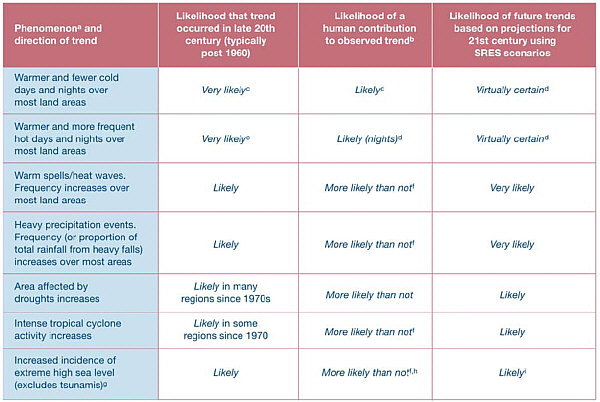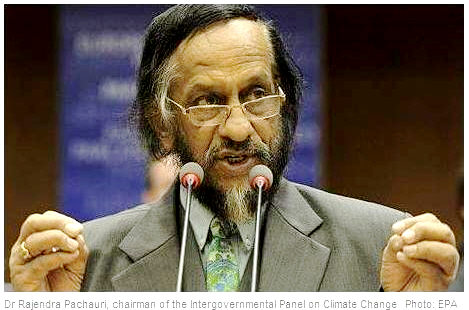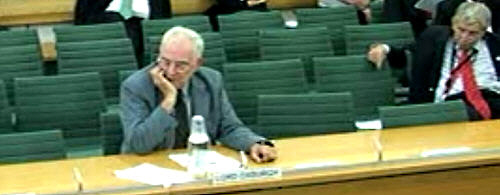On 20th May, 2009, Monbiot had an article at Guardian Environment entitled Price of doing nothing costs the earth with the sub heading
MIT scientists forecast a global temperature rise of 5.2o C by 2100 – but climate change deniers reject models devised by the world’s finest minds. So what do they suggest instead… seaweed?
Here are comments number 11 -15
Hamlet4 (20 May 2009 2:10PM
@George
Thats not science – its a computer model trying and failing to describe a immensely complicated chaotic system. Please read up on the butterfly theory to find out HOW wrong such models can be over time. The 90 % confidence levels for forecasts over 90 years is simply absurd. Rubbish in – Rubbish out.
Hamlet4 (20 May 2009 2:18PM)
@Monbiot
OK, all those of you who reject modelling, answer the question: what would you use instead?
nr 1 – How about using your brain, not your political belief system.
nr 2 – Try and build models that explain the present stagnation in temperature, sea-level rise and increase in ice-extent, instead of just pretending its not happening.
nr 3 – Emphasize the limitations of such models, instead of using them trying to create fear and thereby grants.
scunnered52 (20 May 2009 2:29PM)
George the only person you are scaring is your self. All climate model projections are currently in serious error because they over-estimate “climate sensitivity”; and that’s due in main to what the modellers don’t know. I would recommend you undertake to create your own climate model. Here is DIY course on how to do so…
geoffchambers (20 May 2009 2:38PM)
At the end of the article … is this:
“This work was supported in part by grants from … foundation sponsors of the MIT Joint Program on the Science and Policy of Global Change”.
And who are these industrial sponsors? Why, Exxon, BP, Shell, Total, among others. This is research funded by Big Oil money. Can this be right?
Monbiot (20 May 2009 2:44PM)
Hamelt4: [sic]
You appear to be suggesting that the MIT team is guided by political beliefs and is using this model to create fear and harvest grants. Perhaps you would care to provide some evidence?
Monbiot denied the accusation that the models were used to “create fear and thereby grants” but deflected Hamlet4’s demand to Monbiot to “us[e] your brain, not your political belief system” onto the MIT group, which Hamlet4 hadn’t mentioned (though I had). Clearly, Monbiot was rattled, because 11 minutes later, he was back with this comment:
Monbiot (20 May 2009 2:55PM)
scunnered52:
Of all the posters on these threads, you are the one who looks to me most like an astroturfer: in other words someone posing as an independent citizen while being paid by organisations which have an interest in the outcome. Is my suspicion correct? How about providing a verifiable identity to lay this concern to rest?
Now look at scunnered52’s intelligent comment above and try to spot why Monbiot should accuse him of being an astroturfer. Odd, isn’t it?
Half an hour later, a puzzled Hamlet4 replied to Monbiot’s non sequitur of a question, with a comment that finished:
Try and THINK Monbiot – do you really believe that these models are producing accurate descriptions of our climate 90 years from now ???.
scunnered52 and Hamlet4 then disappeared, and I went off on another tack:
geoffchambers (20 May 2009 3:35PM)
George asks whether we should use computer models or seaweed for predicting future climate change. Research conducted by the International Institute of Forecasters on the accuracy of forecasting suggests that predictions made by the general public are usually more accurate than those made by experts. This is because the man in the street tends to believe things will probably continue much as they have in the past, while your expert tends to follow the spaghetti off the edge of his graphs into the wide blue yonder. So the correct answer is: seaweed.
I then came back to the subject of research financed by Big Oil: Continue reading »




My Affair with George Monbiot: part 1
On 20th May, 2009, Monbiot had an article at Guardian Environment entitled Price of doing nothing costs the earth with the sub heading
Here are comments number 11 -15
Monbiot denied the accusation that the models were used to “create fear and thereby grants” but deflected Hamlet4’s demand to Monbiot to “us[e] your brain, not your political belief system” onto the MIT group, which Hamlet4 hadn’t mentioned (though I had). Clearly, Monbiot was rattled, because 11 minutes later, he was back with this comment:
Now look at scunnered52’s intelligent comment above and try to spot why Monbiot should accuse him of being an astroturfer. Odd, isn’t it?
Half an hour later, a puzzled Hamlet4 replied to Monbiot’s non sequitur of a question, with a comment that finished:
scunnered52 and Hamlet4 then disappeared, and I went off on another tack:
I then came back to the subject of research financed by Big Oil: Continue reading »